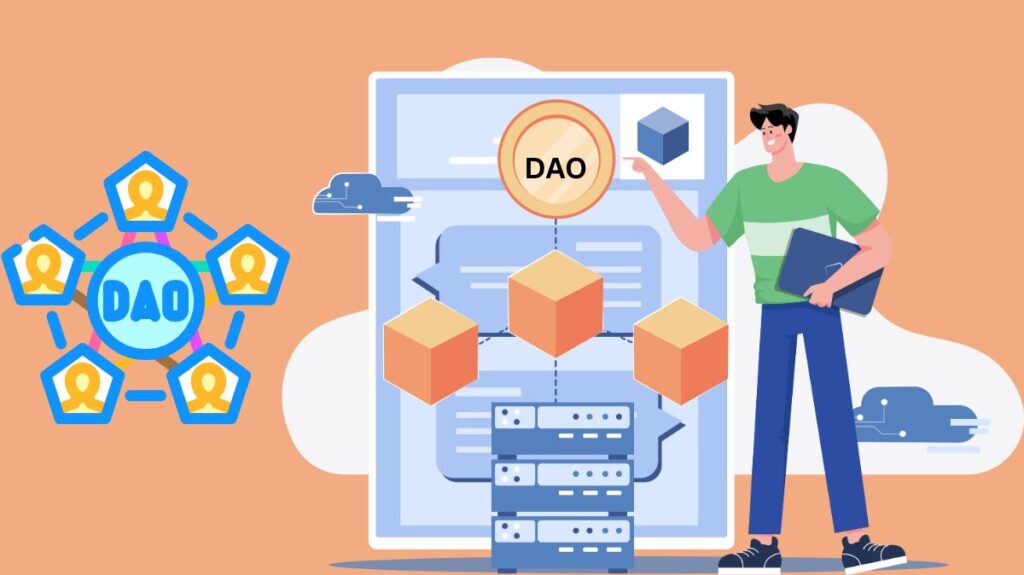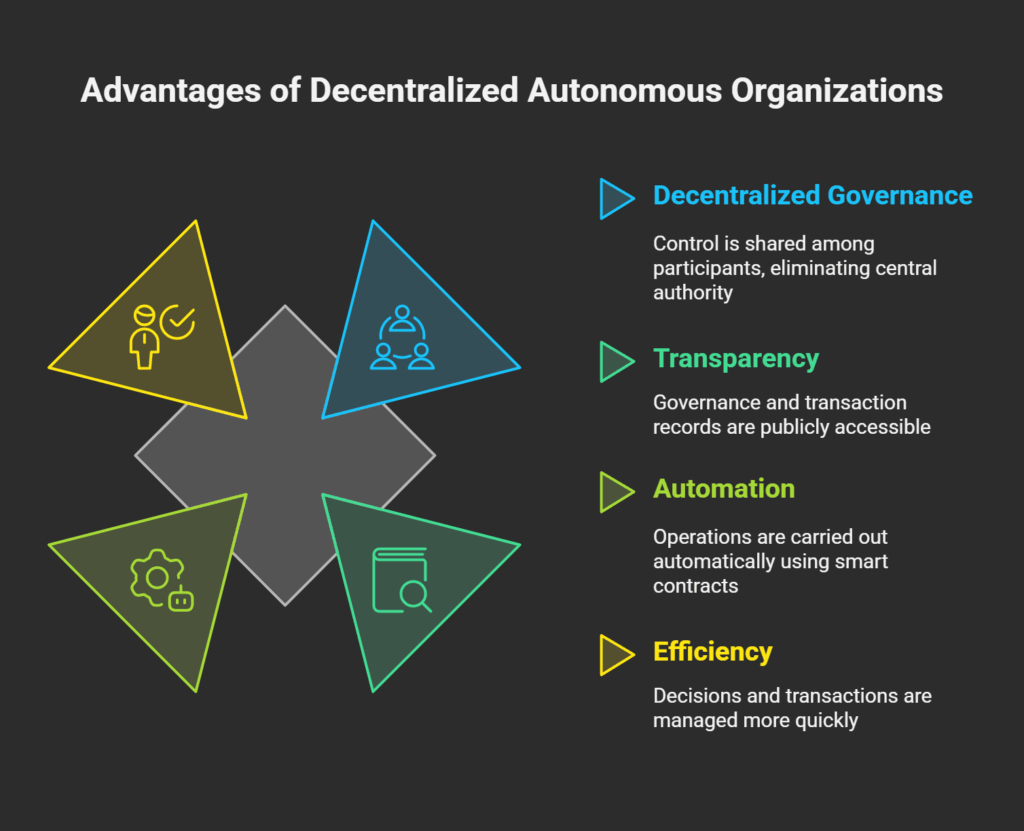Decentralized autonomous organization news

A notable innovation of blockchain technology is the formation of DAOs. DAOs are smart contract-based businesses that operate independently. They signify a change in which the code is regarded as the governing body rather than individuals or written agreements. These organisations function without the need for human input by using programmable money.
The decentralization of current systems is the basic concept of a DAO. There isn’t a single central management, control, or authority like in traditional corporations. Instead, numerous participants, or nodes, share authority and control. Through voting rights corresponding to the ownership of acquired tokens, a group of participants with voting power typically token holders make decisions. The DAO’s smart contracts contain the rules that control its behavior and development. These smart contracts automatically manage sales, purchases, and transfers in addition to making decisions on proposals. Currently, DAOs are autonomous in a reactive sense because their coding logic cannot start itself without a timeout and an external oracle. This decision-making process is transparent to blockchain technology.
From the standpoint of a software developer, a DAO can be thought of as either a complicated smart contract or an interacting module made up of numerous small smart contracts that are abstracted as a single entity. This indicates that they are blockchain-based software applications. Decentralized Applications (DApps) that operate on a peer-to-peer network on top of a blockchain are another name for DAOs. They use a cryptographic technology that is similar to blockchain, have digital assets or crypto-tokens to power themselves, and employ a protocol or algorithm that creates tokens with an integrated consensus mechanism. DApps are run by virtual computers on the node and saved on the blockchain.
Permissionless blockchains are thought to be an ideal choice for fully decentralised governance, particularly in situations with writers who may not know one another. A lot of DAOs are constructed on top of already-existing blockchains that have a currency, like Ethereum.
Typical Use Cases and Illustrations
Investment Funds
Token holders can vote on how money should be invested in a decentralized investment fund run by a DAO. The Ethereum DAO initiative was intended to function as a venture capital fund.
Governance
DAOs make it possible to quickly test out novel group organization techniques and new governance procedures. In crypto metaverses like Decentraland, where users vote on changes and upgrades using governance tokens, they can empower users to decide the future course of projects. Voting rights are included in the Planet DAO of the video game Alien World.
Financial Services
One example of a DAO that automatically manages assets, issues Dai, regulates interest, and manages debt repayment is Maker DAO, the company that created the Dai stablecoin.
Automated Operations
DAOs use smart contract logic to run automatically, saving money on labour costs and enabling work to be completed without human involvement. Purchases, sales, and transfers are automatically managed via smart contracts.
Advantages of DAO

- Decentralized Governance: There is no need for a central authority because control is shared among participants.
- Transparency: The public blockchain generally makes governance and transaction records accessible, resulting in a transparent procedure.
- Automation: By eliminating the need for human interaction and possibly saving money, operations are carried out automatically using smart contract logic.
- Efficiency: Compared to conventional procedures, automated smart contracts can make decisions about proposals and manage transactions more quickly.
DAO Risks and DAO Challenges
- Smart Contract Vulnerabilities: If the underlying smart contract code is not properly crafted, validated, and tested, DAOs may be hazardous. Code flaws or vulnerabilities may result in large losses.
- The infamous DAO project on Ethereum, which raised over $150 million ($168 million), was compromised in June 2016 because of a reentrancy issue in its programming. As a result, almost $50 million worth of Ether was syphoned out. The importance of thorough code testing and formal verification techniques was brought to light by this incident. After a hard fork of the Ethereum network, which became Ethereum Classic, the money was eventually restored.
- Legal position: As of right now, DAOs’ legal position is unclear. This raises questions about responsibility and how the law is applied in various jurisdictions. The SEC has determined that a token sale for a DAO project constitutes the issuing of securities, suggesting that US securities laws may be applicable, although the regulatory status is yet unknown.
Similar Ideas
DACs, or decentralized autonomous corporations, are a subset of DAOs and share concepts with them. The main difference is that DACs have the ability to turn a profit and distribute dividends to shareholders, whilst DAOs are typically regarded as non-profit. Shares in DACs can be bought and sold, and holders may be eligible for receipts depending on their performance. In contrast, with a DAO, tokens can be earned by taking part in the ecosystem rather than just investing. A firm can also be operated automatically by DACs.
Decentralized Autonomous Societies (DASes) are a new idea in which a whole society might run on a blockchain by integrating sophisticated smart contracts, DAOs, and DApps to provide services that are frequently provided by the government. It is perceived as a parallel reality in which the government’s involvement diminishes.
Decentralized Organizations (DOs): DOs are blockchain-based software applications that are modelled after real organizations. According to some sources, DAOs and DOs are essentially the same thing, although DOs require human input, whereas DAOs are autonomous (completely automated with AI logic).
To put it briefly, DAOs are automated companies run by code on a blockchain that seek to eliminate centralised authority and decision-making. They have the potential to be transparent and efficient, but they also face major obstacles with regard to code security and legal legitimacy.
